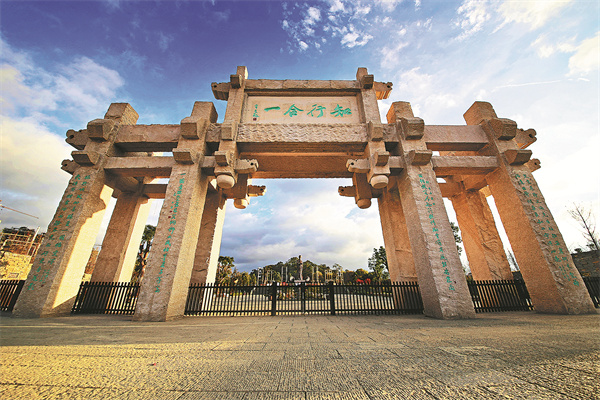

"Wang Yangming left more than 600 poems throughout his life, one-sixth of which were written in Guizhou," says Xie Nian, a senior official with Guizhou's provincial publicity department.
"Guizhou is, therefore, known as the 'holy land of Wang Yangming's learning'", Xie adds.
Local authorities have planned to stage a themed reading and culture event on this year's Teachers' Day on Sept 10.
"During the process of event-planning, we discovered that Wang Yangming had not only sown the seeds of his philosophy in Guizhou, but also left behind many touching stories," Xie says.
For instance, Wang had left his mark on the area, such as those in a small limestone cave he moved in, which he dubbed wanyiwo, or "den for the Book of Changes". The name indicates that was where he read and researched the Book of Changes, one of the traditional Chinese classics.
"A large amount of relics pertaining to Wang have been preserved well in Guizhou," Xie says, adding that an ancestral hall and a cultural park offer an intact and detailed explanation of Wang's life and the essence of his thinking.
"These cultural treasures complement the stunning natural landscapes of Guizhou, making it a very appealing destination," he adds.
As the country has urged a focus on culture and tourism integration, the Guizhou authorities consider it a great opportunity to develop tourism products based on the life of Wang Yangming.